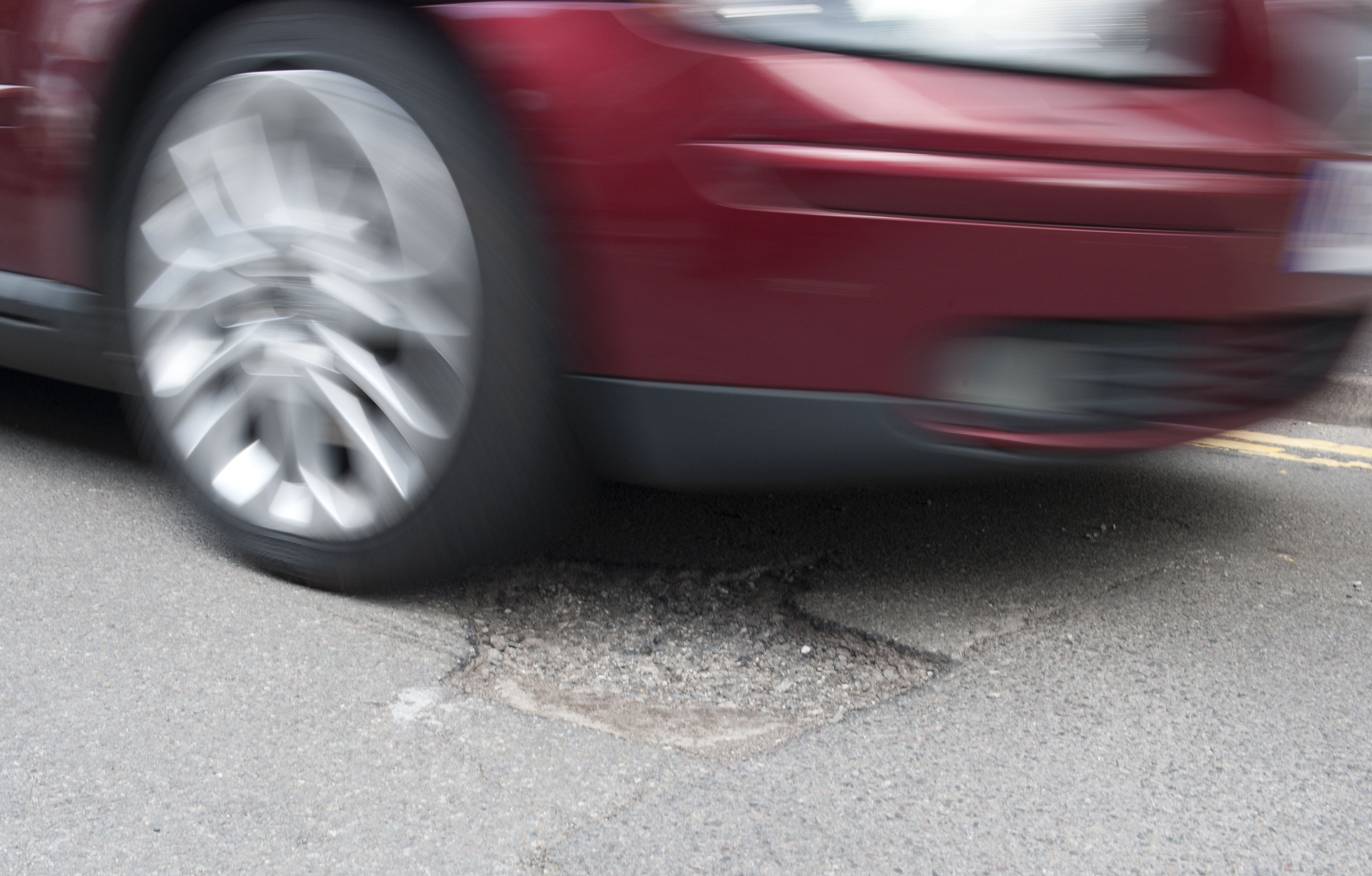
POTHOLE levels are likely to surge because roads are being worn down by a spike in heavier lorries, councils have warned.
The weight of goods carried by British-registered lorries rose by 5% to 1.7 billion tonnes in the year ending June 2016, latest Department for Transport (DfT) figures show.
Heavier vehicles exert more pressure onto road surfaces, causing them to crumble more quickly and form potholes, the Local Government Association (LGA) said.
The organisation, which represents more than 370 councils in England and Wales, claimed Government underfunding has left local roads facing an unprecedented crisis and warned that the increase in the weight of lorries could push the network “over the edge”.
It warned that 2017 could be a tipping point for tackling potholes as the bill for repairing roads in England and Wales could reach £14 billion within two years.
This is several times more than councils’ entire annual revenue spending on highways and transport, which was £4.4 billion in England during 2016.
The DfT has committed £6 billion for English councils to improve local roads over the current Parliament, in addition to a £50 million-a-year fund specifically for tackling potholes.
It has also unveiled plans for high-definition cameras to be fitted to council bin lorries to spot road surface problems which can be treated before they become potholes.
The LGA is calling on the Government to inject a further £1 billion a year into roads maintenance by investing two pence per litre of existing fuel duty.
LGA transport spokesman Martin Tett claimed motorists should “literally be bracing themselves for a surge in potholes”.
He went on: “Our local roads network faces an unprecedented funding crisis and the latest spike in lorries could push our local roads network over the edge.
“Lorries exert massively more weight on road surfaces than cars, causing them to crumble far quicker.
“This year could be a tipping point year regarding potholes.
“Councils, who have experienced significant budget reductions, now face the looming prospect of a bill of £14 billion to bring the nation’s roads up to scratch.”
RAC roads policy spokesman Nicholas Lyes said: “We need a roads infrastructure that is fit for purpose and capable of sustaining a buoyant economy as well as supporting improved journey times for all motorists.”
A DfT spokesman said increases in traffic levels are “good news for British industry and our economy as a whole”, adding that the HS2 high-speed rail line will create new capacity for freight and “help get lorries off our roads”.

Enjoy the convenience of having The Sunday Post delivered as a digital ePaper straight to your smartphone, tablet or computer.
Subscribe for only £5.49 a month and enjoy all the benefits of the printed paper as a digital replica.
Subscribe